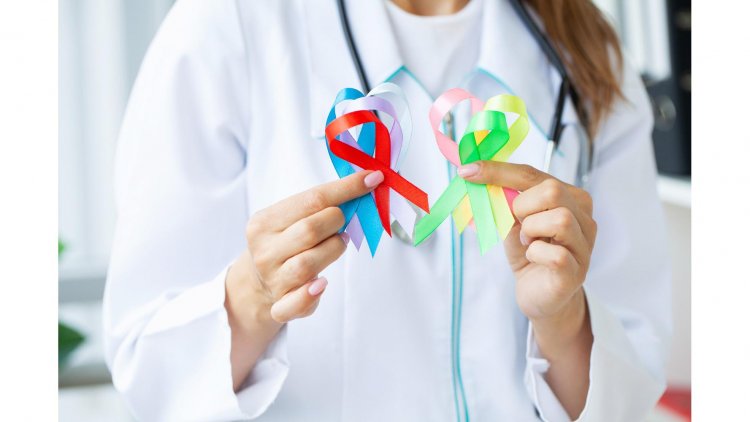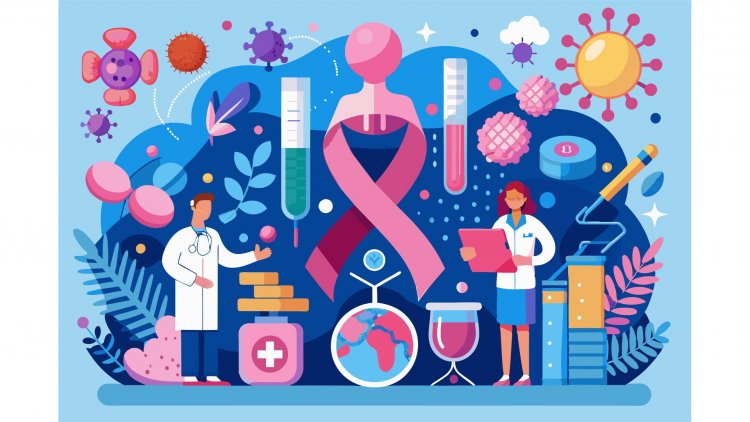Unveiling the Unseen: A Journey Through the Rare Disease Odyssey
Navigating the labyrinth of rare diseases can often feel like venturing into uncharted territory. These conditions, defined as diseases affecting fewer than 200,000 people in the United States, represent a vast and often misunderstood spectrum of health issues. Despite their rarity individually, collectively they impact millions worldwide. Understanding and managing a rare disease requires a multi-faceted approach, from initial diagnosis to ongoing care and support. A rare disease journey typically begins with the challenge of recognition. Many rare diseases present with symptoms that overlap with more common conditions, which can complicate diagnosis. For instance, symptoms of cystic fibrosis, a genetic disorder affecting the lungs and digestive system, can sometimes mimic those of chronic respiratory infections or asthma. This overlap can delay accurate diagnosis, prolonging discomfort and potentially impacting treatment outcomes. For families and individuals, the initial phase of


The Diagnostic Maze: From Symptoms to Solutions
Once symptoms are identified, the path to a precise diagnosis involves navigating a complex web of tests and evaluations. Genetic testing has become a cornerstone in diagnosing many rare diseases. Advances in genomic medicine have enabled the identification of specific genetic mutations associated with rare conditions, providing clearer paths to diagnosis and treatment.
Genetic counselors play a crucial role in this process, helping patients and families understand the implications of test results and guiding them through subsequent decisions. These professionals help interpret genetic information, explain potential risks, and support families in making informed choices about their health and the health of their loved ones.
However, despite these advancements, diagnostic odyssey remains a significant hurdle. A misdiagnosis can lead to inappropriate treatments, causing further complications. For some, a correct diagnosis might come after years of seeking answers. This delay in diagnosis is not just a medical issue but also an emotional and psychological burden, highlighting the need for improved awareness and diagnostic tools in the medical community.
Navigating the Treatment Landscape: From Trials to Triumphs
With a diagnosis in hand, the next step involves exploring treatment options. Treatment for rare diseases can vary widely depending on the specific condition, ranging from medication and surgery to experimental therapies and clinical trials. The rarity of these diseases often means that treatment options are limited, and finding effective solutions can be a challenging process.
Clinical trials are a beacon of hope for many patients. These studies test new treatments and therapies, offering potential benefits beyond standard options. Participating in a clinical trial can provide access to cutting-edge treatments and contribute to the broader understanding of the disease. However, enrolling in a trial also involves risks and uncertainties, and patients must weigh these against the potential benefits.
In addition to conventional treatments, patients with rare diseases often explore complementary and alternative therapies. While these options may not be universally accepted or proven, they can offer additional avenues for managing symptoms and improving quality of life. Integrative care approaches that combine conventional and alternative therapies can provide a more comprehensive treatment strategy.
The Power of Advocacy and Support: Building a Network
Living with a rare disease often necessitates a strong support network. Advocacy organizations play a vital role in this network, providing resources, support, and a sense of community. These organizations offer a range of services, from informational materials and support groups to fundraising efforts for research and treatment development.
Patient advocacy groups can be instrumental in connecting individuals with similar experiences, offering emotional support and practical advice. They also play a critical role in raising awareness about rare diseases, advocating for policy changes, and funding research. Engaging with these organizations can empower patients and families, providing them with a collective voice in their journey through rare diseases.
Building a personal support network is equally important. This network often includes family, friends, and healthcare providers who can offer practical and emotional support. A strong support system can help alleviate the burden of managing a rare disease, providing both practical assistance and emotional encouragement.
The Financial and Emotional Impact: Facing the Reality
The financial implications of managing a rare disease can be significant. Costs associated with treatments, medications, and specialist care often exceed those for more common conditions. In addition to direct medical expenses, patients and families may face costs related to travel for specialized care, adaptive equipment, and lost income due to illness or caregiving responsibilities.
Financial assistance programs, including those offered by advocacy organizations, government agencies, and private foundations, can help mitigate some of these costs. However, navigating these resources can be challenging, and many families find themselves grappling with the economic strain of managing a rare disease.
The emotional impact of living with a rare disease is profound. Patients and families often experience stress, anxiety, and a sense of isolation. Coping with these emotional challenges requires resilience and access to mental health support. Psychologists, counselors, and support groups can provide crucial help in managing the psychological aspects of dealing with a rare disease, offering strategies for coping and fostering a sense of hope and community.
Crafting a Path to Empowerment: Navigating the Long-Term Journey
As patients and families move from the initial shock of diagnosis to a more stable phase of managing a rare disease, they enter a phase where long-term strategies become critical. This includes ongoing management of symptoms, regular medical check-ups, and adapting to the evolving nature of the condition. While the journey may be fraught with challenges, it is also a time of empowerment and adaptation.
Managing Symptoms: A Continual Process
Effective management of rare diseases often involves a multidisciplinary approach, with ongoing adjustments to treatment plans based on the patient’s response and any emerging research. Regular consultations with healthcare providers, including specialists in the specific rare disease, are essential to fine-tune treatments and address any new or changing symptoms.
Patients might also need to adopt lifestyle changes to better manage their condition. This could include dietary modifications, physical therapy, or other lifestyle adjustments tailored to their specific needs. For instance, individuals with metabolic disorders may require specialized diets to manage their condition, while those with chronic pain conditions might benefit from physical therapy and pain management strategies.
Engaging with Emerging Research: Staying Informed
Staying informed about the latest research and treatment options is crucial for managing a rare disease effectively. The field of rare diseases is dynamic, with ongoing advancements in research, clinical trials, and treatment modalities. Patients and families should remain proactive in seeking information and exploring new treatment possibilities.
Participating in patient registries and research studies can also contribute to the advancement of knowledge and treatment options for rare diseases. By sharing their experiences and health data, patients help researchers gain valuable insights that can lead to improved therapies and a better understanding of these conditions.
Emotional Resilience: Building a Supportive Environment
Building and maintaining emotional resilience is an ongoing aspect of managing a rare disease. Patients and families often benefit from mental health support, whether through professional counseling, support groups, or personal coping strategies. Developing a supportive environment at home and within the community can also make a significant difference in managing the emotional and psychological aspects of living with a rare disease.
Support groups and online communities offer valuable resources and a sense of connection for individuals dealing with similar challenges. These communities provide a platform for sharing experiences, advice, and emotional support. They can also offer practical tips for navigating daily life with a rare disease and foster a sense of belonging and understanding.
Advocacy and Awareness: Championing the Cause
Advocacy and awareness are pivotal in the rare disease landscape. By raising awareness, advocating for better healthcare policies, and supporting research funding, individuals and organizations contribute to improving the quality of life for those affected by rare diseases.
Patient advocacy groups and rare disease organizations often lead the charge in these efforts, organizing campaigns, lobbying for policy changes, and raising funds for research. These organizations also play a crucial role in educating the public and healthcare professionals about rare diseases, helping to reduce stigma and improve early diagnosis and treatment.
The Future of Rare Disease Management: Hope and Innovation
Looking ahead, the future of rare disease management is filled with promise. Advances in medical research, technology, and treatment approaches are creating new opportunities for improving care and outcomes for individuals with rare diseases. Innovations such as gene therapy, personalized medicine, and digital health tools hold the potential to revolutionize how rare diseases are diagnosed and treated.
Gene therapy, for example, offers the possibility of correcting genetic mutations at the source, potentially providing a cure for certain genetic disorders. Personalized medicine, which tailors treatments based on an individual’s genetic makeup and health profile, promises more targeted and effective therapies. Digital health tools, including wearable devices and mobile health apps, can enhance disease monitoring and management, providing valuable data to both patients and healthcare providers.
These advancements are a testament to the resilience and dedication of the rare disease community. As research continues and new technologies emerge, the hope for better treatments and, ultimately, cures for rare diseases grows stronger. The journey from diagnosis to recovery is complex and challenging, but it is also marked by a sense of hope and progress.
Overall Conclusive Paragraph:
The journey from diagnosis to recovery in the realm of rare diseases is a multifaceted and often arduous process. From the initial challenge of obtaining an accurate diagnosis to the ongoing efforts to manage symptoms and adapt to a new reality, individuals and families navigate a path filled with both obstacles and opportunities. The support of advocacy organizations, the advancement of research, and the resilience of the rare disease community all play crucial roles in this journey. As we look to the future, continued innovation and dedication promise a brighter horizon for those affected by rare diseases, highlighting the importance of hope, perseverance, and collective effort in the quest for improved care and understanding.
Disclaimer: The information provided in this article is for educational purposes only and should not be considered medical advice. If you have any health concerns or are experiencing symptoms, it is important to consult with a healthcare professional, such as a doctor or clinic, for proper diagnosis and treatment. Always seek the advice of your doctor or other qualified health provider with any questions you may have regarding a medical condition. Do not disregard professional medical advice or delay in seeking it because of something you have read in this article.
What's Your Reaction?





















